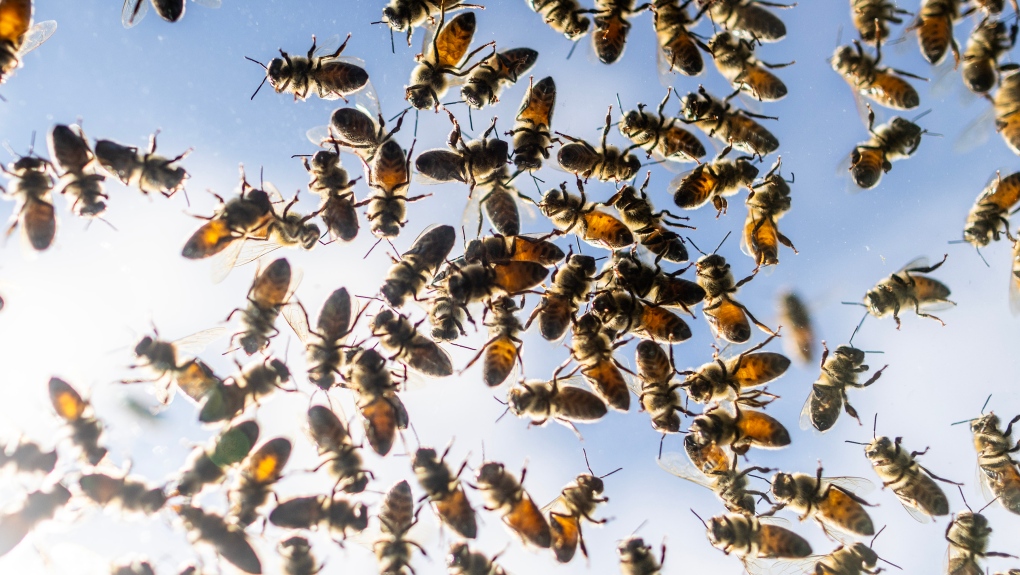Latest News
- Rainfall warnings in British Columbia's Fraser Valley; flood-hit area under pressure again from heavy rainfall
- Pressure mounts on Montreal emergency shelters as winter cold sets in
- Gun attack at Jewish festival on Sydney's Bondi Beach; at least 11 dead, dozens injured
- Four years after Indigenous woman dies in Niagara Hospital, family still waiting for coroner's investigation
- Lawyer: British Columbia RCMP officer should be fired or resign immediately
Latest Ads
-
Jasmine Jewel
Call
-
Omidan group
Call
-
Amir Madanpour
Call
-
Dimo studio
Call
-
Yorkacademy
Call
-
Maryambagheri
Call
-
Shishlix Restaurant
Call

The first bee vaccine was approved in Canada
The first honeybee vaccine for use in Canada has received official approval. The Canadian Food Inspection Agency has conditionally authorized an oral vaccine designed to protect honeybees against a disease known as "American foulbrood," which can devastate bee colonies if left untreated. The vaccine is developed by the United States-based company Dalan Animal Health, and the news of its approval in Canada was made public on October 16. The Canadian Food Inspection Agency announced in an email that this vaccine can be used in Canada under the oversight of the national veterinary organization.
Ernesto Guzman, director of honeybee research, explained that the disease American foulbrood is caused by the bacterium Paenibacillus larvae, and it can persist in beehives for years. Infected bee larvae exhibit a dark color and a fishy odor. Pranal added, "Microbial and lethal to baby honeybee larvae, American foulbrood is usually treated with antibiotics in North America, but there are cases where hives containing tens of thousands of bees need to be destroyed." He elaborated that having a bee vaccine is a practical and cost-effective solution to combat this disease, emphasizing the importance of protecting honeybees against diseases for human food production. It's estimated that one-third of the food we consume in Western societies is produced thanks to the pollination services of bees.
Pranal also pointed out, "If the bee vaccine proves to be effective, it can reduce the use of antibiotics, which, in turn, lowers the risk of antibiotic transfer to honey and its entry into the human food chain. Honey is undoubtedly a product used in various applications, including antibiotic production, but any decline in its production within the food system, whether due to a decrease in honeybee populations or other livestock productions in Canada, can pose certain challenges."
This bee vaccine contains dead Paenibacillus larvae bacteria, which is ingested by the queen bee, responsible for egg-laying. The immunity conferred by this vaccine is then transferred to developing bee larvae. The bee vaccine is mixed with powdered sugar and glucose syrup, consumed by worker bees, and their secretions reach the queen bee. Research trials conducted by Dalan Animal Health indicate a 30% to 50% reduction in undesirable American foulbrood infections among honeybee larvae that receive the bee vaccine.
Guzman and Pranal emphasized the need to see whether the vaccine will have the same laboratory-level effectiveness in the real world. Guzman explained, "If further field trials yield positive results, it can be assured that this bee vaccine will be an excellent tool for controlling these specific diseases."
Furthermore, this bee vaccine has the potential to pave the way for the development of other vaccines, which can be beneficial in the beekeeping and beneficial insect industry.
Suggested Content
Latest Blog
Login first to rate.
Express your opinion
Login first to submit a comment.
No comments yet.


































